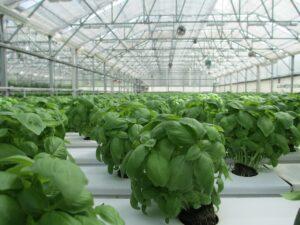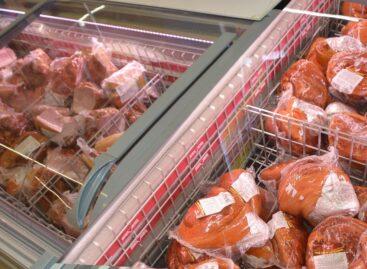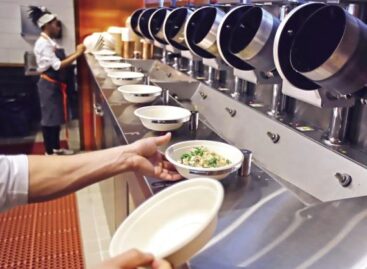Sustainable turnaround in Hungarian agriculture: more and more people are switching to modern production methods
Innovative, sustainable technologies are playing an increasingly important role in Hungarian agriculture, which not only increase productivity but can also ensure competitiveness in the long term. Organic farming, greenhouse cultivation and the spread of digital technologies all show that farmers are adapting to new challenges while also taking environmental sustainability into account.

(Photo: Pixabay)
The size of agricultural areas involved in organic farming has continuously increased in Hungary in recent years. The size of land converted to organic farming is showing a significant expansion, which indicates that producers are increasingly recognizing the economic and environmental benefits of sustainable methods. Organic farming not only serves to protect the soil and preserve biodiversity, but the market is also showing increasing demand for products produced without chemicals. The largest organic areas currently function as pastures or grasslands, but arable organic farming is also becoming increasingly popular. Grains, green fodder and organic fruit production are also showing continuous growth, which creates new opportunities in both domestic and international markets.
The rise of greenhouse and plastic tent production
Due to weather extremes and the effects of climate change, more and more farmers are choosing greenhouse or plastic tent production technologies. These methods provide producers with the opportunity to achieve stable yields despite fluctuations in environmental factors. This type of farming is particularly important in vegetable and fruit production, where ensuring a continuous supply is a primary consideration. Although the total area of greenhouse production has decreased somewhat in recent years, the proportion of modern, energy-efficient systems has increased. More and more farmers are switching to heated greenhouses, which allow production during the winter months, thus improving the stability of farms’ incomes.
Digitalization and precision farming
Digital solutions are gaining ground in agriculture, which can significantly reduce costs and increase efficiency. Precision farming is becoming more widespread, especially on larger farms, where the use of modern technologies provides significant advantages. Automated machines, robotic systems and sensor-controlled crop production processes allow for optimal nutrient supply and fine-tuning of irrigation processes. The use of drones and GPS-based systems helps farmers increase yields and reduce environmental impact.
Energy efficiency and the use of sustainable energies
Energy efficiency is also becoming increasingly important in agriculture. Farmers are increasingly using renewable energy sources, such as biogas production, solar energy and biomass-based energy production. These technologies not only support sustainability, but can also reduce energy costs in the long term.
Future challenges and opportunities
Although organic farming and the rise of digital technologies show clear progress, the sector still faces many challenges. Developing infrastructure, expanding storage capacities and modernizing agricultural training can play a key role in ensuring that Hungarian agriculture remains competitive in the long term. On the path towards sustainable agriculture, more and more farmers are recognizing the potential of modern technologies and an ecological approach. For domestic producers, the key to success lies in continuous innovation and the application of sustainable solutions.
Agricultural sector/KSH
Related news
Fashion, drones and sustainability – the new face of agriculture at the AgriTech InnoExpo event
🎧 Hallgasd a cikket: Lejátszás Szünet Folytatás Leállítás Nyelv: Auto…
Read more >Related news
PwC Global CEO Survey: CEO confidence at a five-year low
🎧 Hallgasd a cikket: Lejátszás Szünet Folytatás Leállítás Nyelv: Auto…
Read more >The Year of the Horse – Culinary trends in 2026
🎧 Hallgasd a cikket: Lejátszás Szünet Folytatás Leállítás Nyelv: Auto…
Read more >







